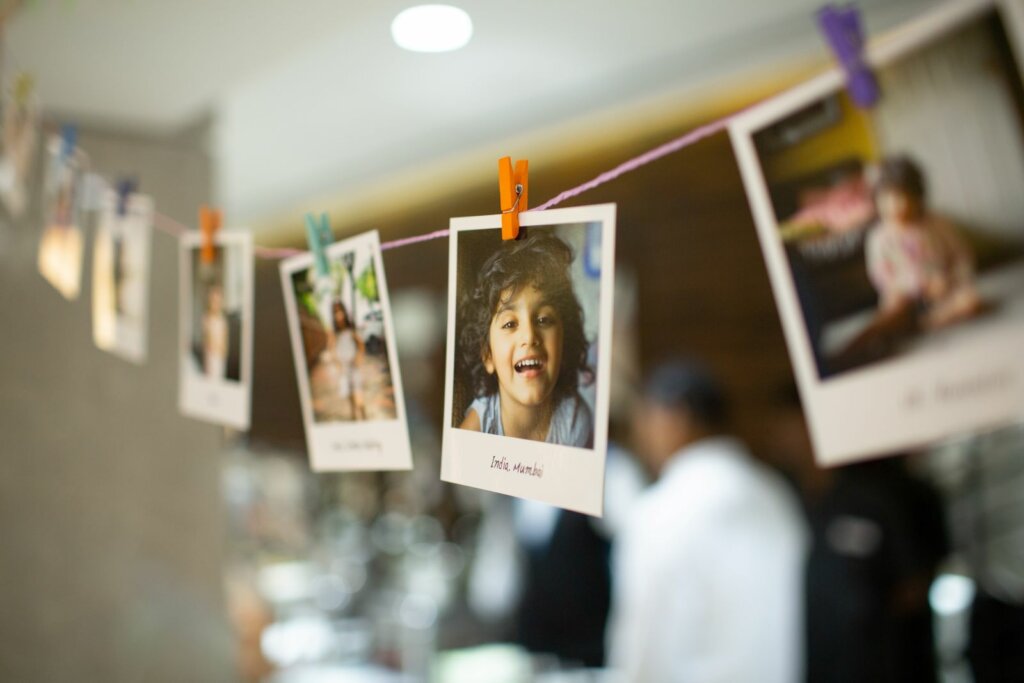Summer is a season that elicits nostalgia like none other for me. I long to recapture the lazy, sun-soaked days of my childhood when time stretched like Silly Putty. I want the carefree aesthetic portrayed in media – beach days, fireflies, and ice cream. In my mind, everything was great way back when. Except…it wasn’t.
It’s a quirk of the brain that we misremember the past and downplay negative events. We drop the bad stuff – sunburns, rain, fights with loved ones – and only remember the highlights. When we do remember the bad stuff, we reconstruct it to make whatever happened more enjoyable and entertaining. The time you broke your toe while hiking becomes more exaggerated, more colorful. It’s a yarn you trot out at parties to elicit laughter and pity. But there’s still some wistfulness about the past.

Nostalgia creates a warped view of things. Much like a view-master! Photo by Girl with red hat on Unsplash
Researchers call this “rosy retrospection” and we do this not only in our personal lives but also when we fantasize about how society was better “back then.” In a recent poll, six out of every 10 Americans said that “life for people like them is worse today than it was 50 years ago.” But as University of Calgary instructor Paul Fairie demonstrates in his Twitter thread, “A Brief History of Things Were Better 50 Years Ago,” we’ve been saying this since 1890!
To be clear, all humans do this and have always done this because it’s how our brains work. It’s not a relatively recent development dating back to 1890. We all fall into the nostalgia trap but the important thing to remember is it’s not true. There is no idyllic utopia in the past. Things were not better back then. Some of the bigger societal things like climate change and wealth inequality, yes, they were better years ago, but our day-to-day lives were not.
I put this to the test by rereading some of my journals and the time periods I thought were great were anything but. I was insecure or heartbroken or uncomfortable or not sleeping through the night. I was stuck or broke or irritated. In short, I was experiencing the entire range of human emotions because that’s what it means to be alive. There is always something stressful or bothersome happening just as there is always something fun or joyful happening.
A time when everything is perfect doesn’t exist except in snippets. We have perfect moments, hours. If we’re lucky, perfection stretches to days but never months or years. It’s just not possible because the nature of life is to change and move. It’s why my spiritual teacher says, “Here in the universe, nothing is stationary, nothing is fixed. Everything moves; that’s why this universe is called jagat. Movement is its dharma; movement is its innate characteristic.”
The best we can do then is feel gratitude for the perfect moments life grants us and keep our eyes trained ahead, not behind. One more quote from my spiritual teacher: “You are to look ahead, you are to look forward. If you look back, if you look behind, you are wasting your valuable time.” And time, as we all know, is precious.
I dream of a world where we remember that rosy retrospection is real and it’s likely we’re misremembering the past. A world where we understand things weren’t better in our personal lives five years ago or 50 years ago or 500 years ago. A world where we remember to keep our eyes trained ahead in order to avoid falling into the nostalgia trap.
Another world is not only possible, it’s probable.
I’m currently in Washington, D.C. visiting friends and it feels surreal. I went to university here and am visiting my old stomping grounds. I half expect to run into my younger self on the street because the memories are so visceral. The ghost of young me is present in a way she hasn’t been on previous trips. Maybe it’s because my college friends and I are approaching 20 years of friendship, or because they all have kids of their own and I’m recognizing how much things have changed. Whatever it is, I’m acutely aware of something my spiritual teacher says.
“A 5-year-old child is transformed in due course into a 15-year-old boy,” he said. “In 10 years, the child becomes the boy. Thereafter, you will never be able to find the body of the 5-year-old child. So the child’s body has certainly died.” He then mentions the boy growing into a man, then hitting middle age, then old age, until he finally dies and says, “The rest of the changes we do not call death; but in fact, all the changes qualify as death.”
We don’t recognize them as such but all the changes we go through are a sort of death. We can’t find the people we used to be except in memory and that’s what I’m getting in touch with on this trip. I’m not the person I was and neither are my friends, but we all remember each other when we were 18. We tell stories about our past selves, the shenanigans we got up to, how we met, who dated whom, and what happened when.
It’s fun to reminisce but it truly feels like we’re talking about people that are dead, just like my spiritual teacher says. None of us are the same as we were. A part of me wants to go back in time to those college days when my friends lived within walking distance. I want to travel in a pack to coffee shops and restaurants, where we took over large tables and other patrons gave us the side eye for being so animated. These days my friends don’t all live within walking distance. And when we travel in a pack it’s because there are multiple children in tow, not because we’re a group of 10 going out for dinner.
To quote my spiritual teacher again, “This expressed universe is nothing but a collection of temporary entities which are undergoing constant metamorphosis according to the sweet will of nature.” We are all temporary entities and we are all constantly changing. Nothing stays the same. Nothing. I have some sadness about that and at the same time as I wind down this trip, I’m enjoying my stay, remembering who I was and how I felt. I’m appreciating that I do have 20 years of friendship under my belt and for a short time at least, I can say hello to 18-year-old Rebekah.
I dream of a world where we recognize we are all temporary entities undergoing constant change. A world where we understand that as we age, our past selves no longer exist. A world where we remember who we used to be and take the time to grieve for those small deaths while also appreciating who we are now.
Another world is not only possible, it’s probable.
